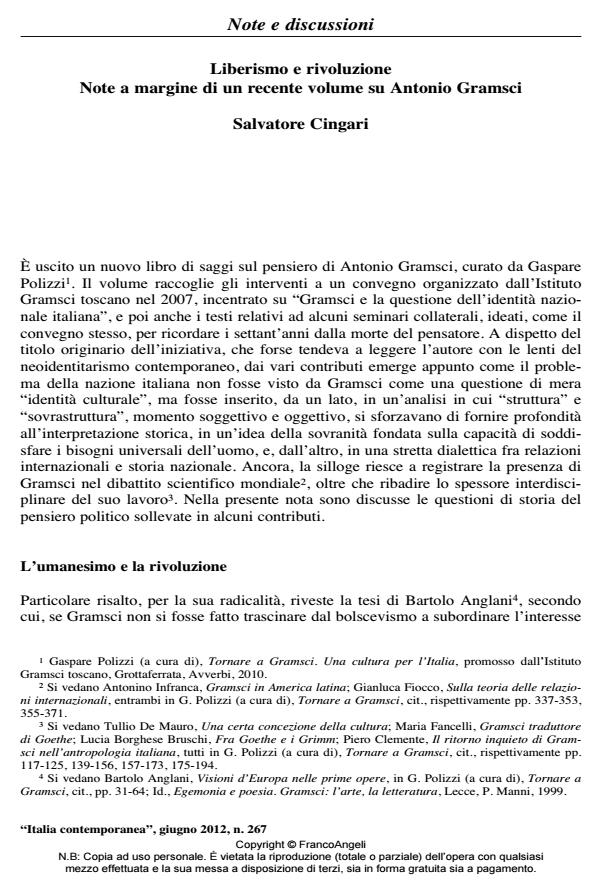Economic liberalism and revolution. Commenting a recent volume on Antonio Gramsci
Journal title ITALIA CONTEMPORANEA
Author/s Salvatore Cingari
Publishing Year 2012 Issue 2012/267
Language Italian Pages 14 P. 277-290 File size 205 KB
DOI 10.3280/IC2012-267004
DOI is like a bar code for intellectual property: to have more infomation
click here
Below, you can see the article first page
If you want to buy this article in PDF format, you can do it, following the instructions to buy download credits

FrancoAngeli is member of Publishers International Linking Association, Inc (PILA), a not-for-profit association which run the CrossRef service enabling links to and from online scholarly content.
This study deals with two crucial aspects of Gramsci political views: the "liberal" component that characterizes his economic outlook until the end of the First World War and the combination of a leninist revolutionary perspective with universalistic motives of humanistic derivation. The A. firstly reconstructs young Gramsci’s position on economic liberalism, from 1915 up to his final rejection of Einaudi’s "utopia", showing how that position - exceeding Marx’s confutation of "State socialism", rooted as it was also in early Twentieth Century idealism and "meridionalist" claims - found its polemical target not in the "state" as such, but in the "state" subdued to the interests of monopoly capital. Secondly, he suggests that in Gramsci’s view the rupture with bourgeois state would actually realize the supreme ideals of European culture, favoring the emancipation of every single individual through a statehood no longer conditioned by class bias. Yet in the A.’s opinion this fundamental passage of Gramsci’s thought appears to be the most problematic as regards political theory.
Keywords: Antonio Gramsci, economic liberalism, revolution, First World War, bourgeois state, humanistic culture
Salvatore Cingari, Liberismo e rivoluzione. Note a margine di un recente volume su Antonio Gramsci in "ITALIA CONTEMPORANEA" 267/2012, pp 277-290, DOI: 10.3280/IC2012-267004